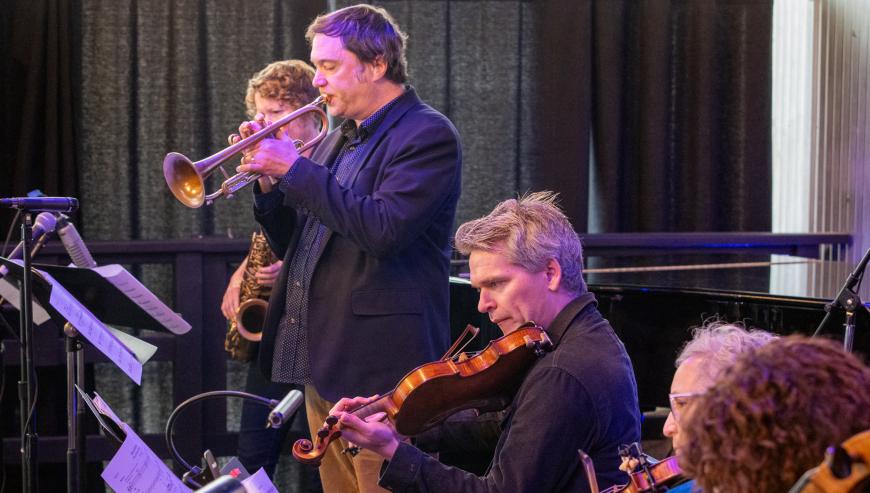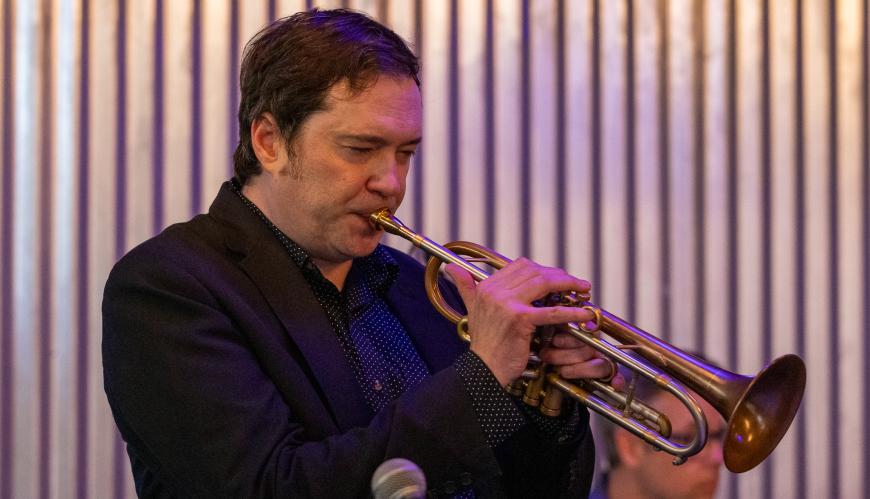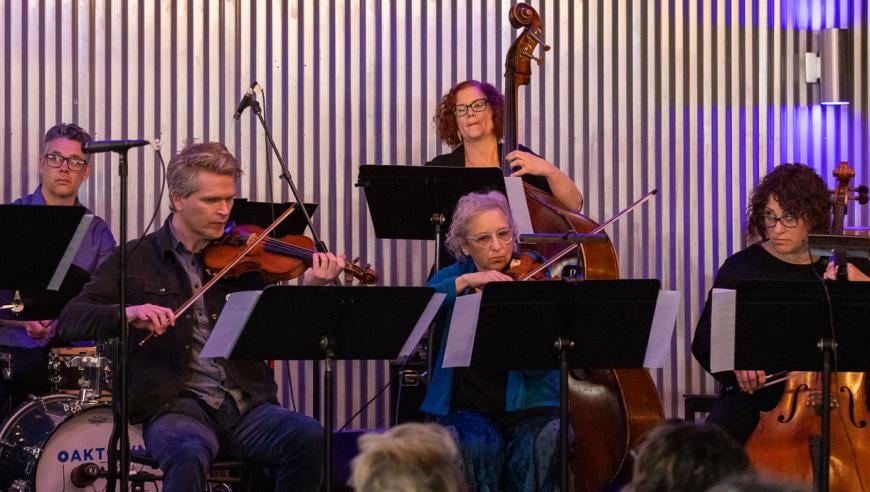
East Bay trumpeter Ian Carey is a heady composer who often writes music reflecting his anxieties and preoccupations, turning angst and obsession into potent creative fuel. His new CD, Strange Arts, is a chamber jazz project that isn’t afraid to shake up the room. And in exploring the aesthetic confluences between his musical proclivities and the work of his father, the late prolific graphic artist Philip Carey, he’s gotten out of his own head and into a fascinating new space.
His seven-piece group, Ian Carey and Wood Metal Plastic, melds a jazz quartet with a string trio, and his writing effectively integrates all the elements rather than treating the strings as melodic sweetening. At the album release concert on Sunday afternoon at Oaktown Jazz Workshops, the side room that once served as a bar featured a display of several works by Philip Carey, including small, intricately rendered multihued graphics and a three-dimensional ofrenda-style construction built out of cardboard food packaging.

The obvious father-son connection is painstaking attention to detail. With reams of sheet music onstage and lots of visible counting and eye contact with fellow musicians, Carey presented a deeply challenging program that the players handled with aplomb. It probably wasn’t coincidental that he opened the concert with an expanded arrangement of the title track from his first album, 2006’s Sink/Swim.
He started with several advantages, most importantly the deep ties between his bandmates. Bassist Lisa Mezzacappa, whose presence on a bandstand is a virtual guarantee that something interesting is going down, and texturally acute drummer Jason Levis have played countless gigs together, including their experimental-minded project duo B.
Violinist Irene Sazer and cellist Jessica Ivry toured and recorded together for several years in Sazer’s stylistically polyglot Real Vocal String Quartet. And Sazer was an essential early member of the Turtle Island Quartet, the group with which violinist Mads Tolling won two Grammy Awards years later. Rounding out the septet was alto saxophonist Kasey Knudsen, a supremely fluid improviser who blended beautifully with Carey when she wasn’t taking an arresting solo.

Carey wrote the bulk of the material as part of a suite, Set for 7, with the support of an InterMusic SF grant. Often multi-sectioned with tricky transitions, the music was most effective exploring contrasting sonorities and densities, like the insistently playful but treacherous “I Still Remember Clyfford Still.” The afternoon’s biggest surprise was Carey taking a vocal turn on the gorgeous Kenny Wheeler tune “Nicolette,” which was rechristened “Child of Tomorrow” with lyrics by Norma Winstone.
The concert closed with a slow, spacious ballad, “Unforeseen (CGBG),” dedicated to clarinetist and composer Ben Goldberg, and the breakneck bop-influenced “Alien Anthropology,” a careening steeplechase that brought home once more that Carey’s music is authentically strange, a quality that’s always in short supply.



